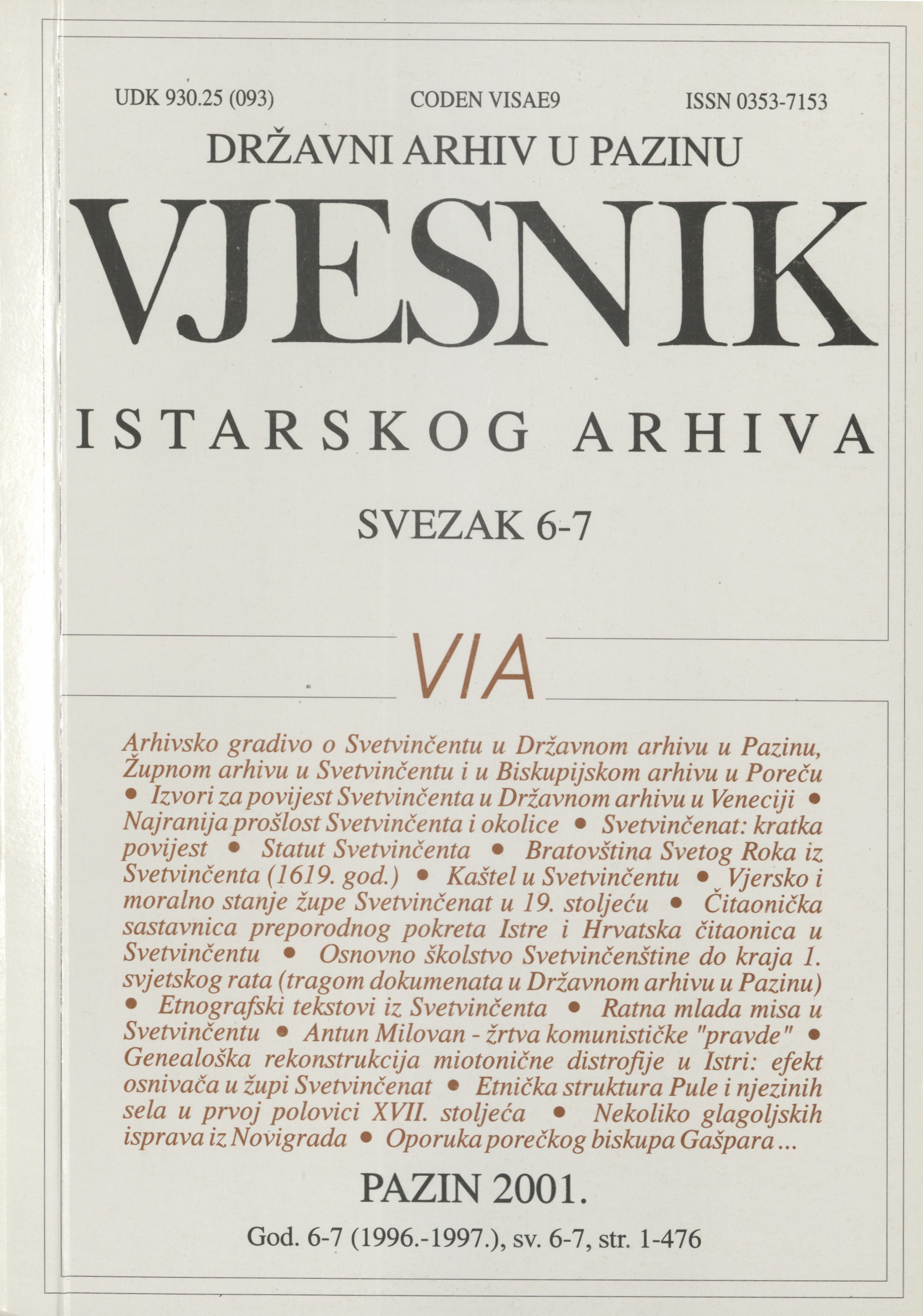The Statute of Svetvinčena
Abstract
As an introduction, the A. describes the development of the Istrian historiografy, Italian, Croatian and Slovenian, from the beginning of the 19th century to the present, in relation to the edition of statutes of Istrian towns. A really thorough bibliography confers a particular value to this paper. The A. then marks the importance of the Statute of Svetvincenat, in relation to the lack of documents on the Svetvincenat fiefdom, and taking into consideration the fact that it is the only statute of a rural feudal possession known in Istria. To the captain managing the fief the Statute was the guide between the interests of the feudal lord and a certain degree of (limited) autonomy on the part of the inhabitants, whose common law was partly written in the Statute. In it the relations are described between the judge-feudal lord represented by the captain and the rural community with the zupan on its head, having himself authority and privileges. The Statute regulates the prerogatives of the Council and the behaviour of the Captain. As in other statutes, it reflects the relationship between the centre and the periphery of the state, the captain having the authority usually held by the Podesta or Rettore. As one can see from the provision that the statutory meeting of the Council must have been held each year and that during that meeting each year all of its chapters could have been discussed again, the Statute was valid one year. In such way the Statute has gradually changed: some rules disappeared, others were added, while some were renovated each year. The last addition was made in 1694. The A. found one copy of the Statute in the private archive of the Grimani family, in the hands of the last descendants. He describes the document and establishes that the first ninety paragraphs were written in the period of the Morosini rule. They regulate the economic life of a rural community in its relation with the feudal lord, some ecclesiastical questions and guidance concerning civil and penal questions for the resolution of disputes on a local level. Regarding the legal aspect of the Statute, he stresses the importance of the appeal, which made possible - for the central state authority - to control the legality of the performance of the captain and of the subjects, as well as the degree of autonomy of the Morosini and Grimani feudal masters in relation to the Venetian judicial authority. At the end, he presents some examples of authentic sentences that were inscribed into the Statute.
Downloads
Published
Issue
Section
License

This work is licensed under a Creative Commons Attribution-NonCommercial 4.0 International License.

